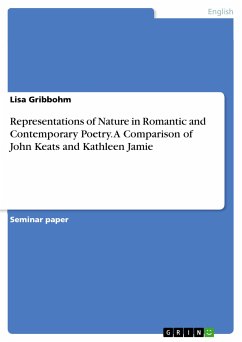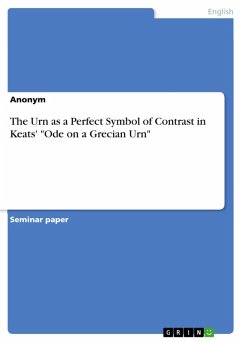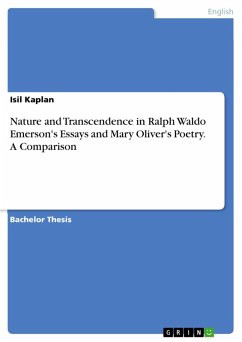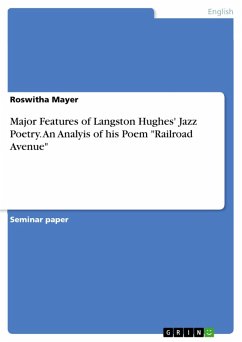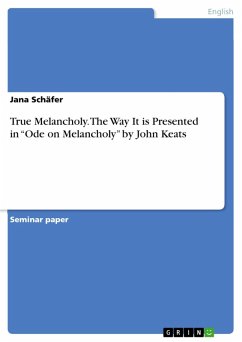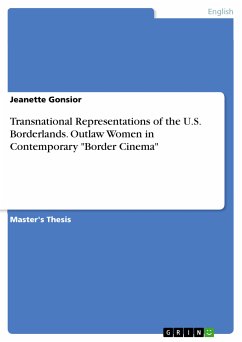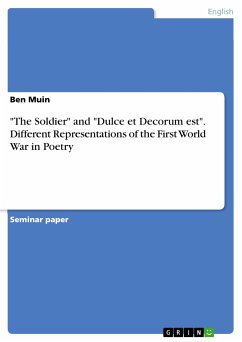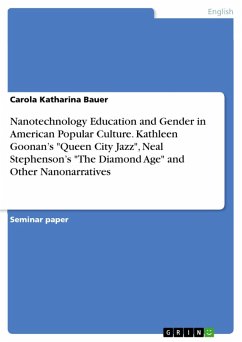Seminar paper from the year 2018 in the subject English Language and Literature Studies - Literature, grade: 2,5, Technical University of Braunschweig, language: English, abstract: "The poetry of earth is never dead" (Keats 45), that is what John Keats wrote in the first line of his sonnet "On the Grasshopper and Cricket". Until now, one could say that his statement from 1884 is true. Poetry still exists and has a significant impact on our present society. Contemporary authors as Kathleen Jamie are modern writers who deal with themes about our lives on earth. Nature was one of the central topics during the romantic era and is still a persistent theme due to environmental debates as the climate change or the pollution of our planet. It is a well-known fact that the consciousness of nature, during these years, had possibly changed, but, some thoughts and ideas of the romantics might still wield influence on contemporary poetry. This fact leads to the central question that motivates this paper, namely to what extent the poems in "The Tree House" by Kathleen Jamie contain similarities to the ideas and thoughts about nature, in the romantic era during the 18th century. Is Individualism and Subjectivity still as important as it was for the romantics and is the understanding of nature still the same as it was two-hundred years ago? Does Kathleen Jamie try to escape of the world through imagination or does she face up to the problems of our planet? To answer these questions, it is necessary to begin by taking a closer look at John Keats and his poetical character. Afterwards, the romantic ideology with its importance of individualism and subjectivity as well as escapism through imagination will be considered. On this occasion, reason and intellect in opposite to emotion will be discussed. After analysing the poems "Ode to a Grecian Urn" and "Ode to a Nightingale" by John Keats, in terms of the characteristics considered previously, the romantic era will be outpaced, and the focus will be on Kathleen Jamie and her contemporary poetry. The new nature writing and its ecocritical awareness will be discussed what, in the end, leads to the main analysis, where a few selected poems of the collection "The Tree House" will be examined and interpreted.
Dieser Download kann aus rechtlichen Gründen nur mit Rechnungsadresse in A, B, BG, CY, CZ, D, DK, EW, E, FIN, F, GR, HR, H, IRL, I, LT, L, LR, M, NL, PL, P, R, S, SLO, SK ausgeliefert werden.

